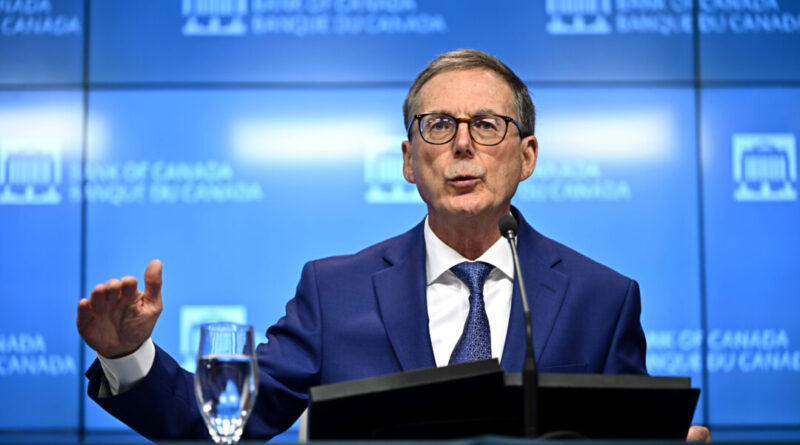Economists Predict Inflation to Decrease to 2.1%, Reaching Lowest Point Since March 2021
Economists are predicting that Canada’s annual inflation rate in August will drop to its lowest level since March 2021.
Prior to the release of Statistics Canada’s consumer price index on Tuesday, economists surveyed by Reuters are expecting a 2.1 percent increase in prices from a year ago, down from the 2.5 percent rise in July. They also forecast that inflation will remain flat on a month-to-month basis.
“Unless there’s a hidden factor at play, it seems like we’re in for a positive outcome,” stated BMO chief economist Douglas Porter.
RBC economists Nathan Janzen and Claire Fan mentioned in a recent report that these projections would bring the headline inflation rate just slightly above the Bank of Canada’s two percent target.
“The majority of the slowdown in August is expected to come from a decrease in gasoline prices, but the Bank of Canada’s preferred core CPI indicators are also predicted to decline, with the three-month annualized growth rate dropping from an average of 2.6 percent in July,” the RBC economists explained.
The ongoing progress in slowing inflation aligns with the central bank’s indication of a willingness to accelerate cuts to its primary interest rate if the circumstances require.
The Bank of Canada recently lowered its primary interest rate by a quarter-point, marking the third sequential reduction to 4.25 percent. Governor Tiff Macklem mentioned that the decision was driven by a decline in inflation and hinted that if future CPI numbers continue to disappoint, more significant rate adjustments may be necessary.
Conversely, Macklem noted that if inflation surpasses expectations, the pace of rate cuts could be slowed down.
Inflation has stayed below three percent since January, with concerns of accelerating price growth diminishing as the economy weakens.
Porter highlighted that despite improvements in the inflation rate, there isn’t yet a compelling case for the bank to accelerate its actions.
He forecasts that the central bank will decrease its principal interest rate by a quarter-point at each meeting until July 2025, bringing it to 2.5 percent by then. This prediction follows recent data indicating an uptick in Canada’s unemployment rate to 6.6 percent in August from 6.4 percent in July.
However, Porter mentioned the possibility of the bank expediting its rate reduction process if inflation continues to ease.
“If we are mistaken, it may be that we reach 2.5 percent even faster and potentially lower,” Porter suggested.
“There’s an argument to be made that if the economy experiences further challenges, there’s little reason for the bank to maintain rates at what they consider neutral. They could go below that level.”
The main contributor to inflation has been housing costs as Canadians deal with high rents and mortgage payments. Porter highlighted that excluding housing expenses, inflation in both Canada and the U.S. is hovering slightly above one percent.
“Essentially, the only factor propping up Canadian inflation above two percent is housing, and it appears that housing costs are likely to decrease,” he stated.
With the U.S. Federal Reserve convening on Wednesday, Janzen and Fan anticipate that the American central bank will announce its first rate cut in four years.
“Gradual but consistent softening in the labor market and decelerating inflation indicate that the current high interest rates are no longer necessary,” they stated.
“We believe Governor (Jerome) Powell’s remarks will lean towards caution—hinting at potential rate cuts without committing to a predefined path to allow for more flexibility in future decisions.”





